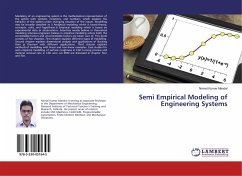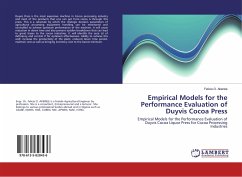
An Empirical Methodology for Engineering Human Systems Integration
Versandkostenfrei!
Versandfertig in über 4 Wochen
30,99 €
inkl. MwSt.
Weitere Ausgaben:

PAYBACK Punkte
15 °P sammeln!
The systems engineering technical processes are not sufficiently supported by methods and tools that quantitatively integrate human considerations into early system design. Because of this, engineers must often rely on qualitative judgments or delay critical decisions until late in the system lifecycle. Studies reveal that this is likely to result in cost, schedule, and performance consequences. This dissertation presents a methodology to improve the application of systems engineering technical processes for design. This methodology is mathematically rigorous, is grounded in relevant theory, a...
The systems engineering technical processes are not sufficiently supported by methods and tools that quantitatively integrate human considerations into early system design. Because of this, engineers must often rely on qualitative judgments or delay critical decisions until late in the system lifecycle. Studies reveal that this is likely to result in cost, schedule, and performance consequences. This dissertation presents a methodology to improve the application of systems engineering technical processes for design. This methodology is mathematically rigorous, is grounded in relevant theory, and applies extant human subjects data to critical systems development challenges. The methodology is expressed in four methods that support early systems engineering activities: a requirements elicitation method, a function allocation method, an input device design method, and a display layout design method. These form a coherent approach to early system development. Each method is separately discussed and demonstrated using a prototypical system development program. In total, this original and significant work has a broad range of systems engineer applicability to improve the engineering of human systems integration. This work has been selected by scholars as being culturally important, and is part of the knowledge base of civilization as we know it. This work was reproduced from the original artifact, and remains as true to the original work as possible. Therefore, you will see the original copyright references, library stamps (as most of these works have been housed in our most important libraries around the world), and other notations in the work. This work is in the public domain in the United States of America, and possibly other nations. Within the United States, you may freely copy and distribute this work, as no entity (individual or corporate) has a copyright on the body of the work. As a reproduction of a historical artifact, this work may contain missing or blurred pages, poor pictures, errant marks, etc. Scholars believe, and we concur, that this work is important enough to be preserved, reproduced, and made generally available to the public. We appreciate your support of the preservation process, and thank you for being an important part of keeping this knowledge alive and relevant.












